Janah
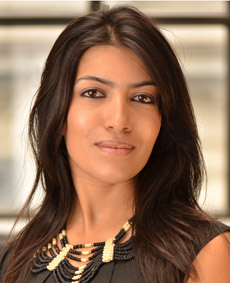
Leila Janah
ON EQUALITY
I have a small tattoo on my right wrist—the Sanksrit word sama, which means “equal” or "same" in English. Tamding, a refugee in Dharamsala, India--where Samasource operated a work program--created this permanent reminder of something my father taught me as a child: we have a duty, as people born in the richest country in the world, to level the playing field for those less fortunate. He used to subscribe to the New Internationalist, an organization which produces beautifully photographed calendars featuring people from poor countries and statistics about their access to clean water, food, and sanitation.
The seed my father planted bore fruit many years later. In 2004, I took a job at the World Bank to write a background paper for the 2006 World Development Report on Equity. In the course of my work, I came across a remarkable book, World Poverty and Human Rights, by the esteemed moral philosopher Thomas Pogge. Pogge argues that as beneficiaries of a global economic system, we have a positive moral duty to ensure that all participants in that system are treated fairly. Reading Pogge was like listening to a clearly distilled version of the jumble of thoughts I'd had about equity since I was a child.
Given this background, I couldn’t think of a better theme to use for my Curating Change selections than Equality. Samasource, the organization I founded and now lead, provides work to marginalized women and youth living in poverty around the globe. Work is at the core of human dignity. Sadly, women are far less likely to be employed in the formal sector than men, and when they do work they are too often repressed, disregarded, and unsupported.
In making my selections for IMOW, I looked for stories from or about women fighting against the status quo. The work I found, coming from women all over the world, was beautiful and inspiring—women shedding light on long-standing inequalities, working in creative ways to level the playing field, or simply demanding equal opportunities to showcase their full potential. Learn more about Leila Janah>>
CURATOR SELECTIONS
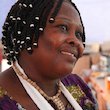
Women Who Light The Dark
Paola Gianturco's photo series on the Barefoot College in India documents women from Africa learning electrician skills from Indian women. These skills are portable--the African women take them back to their remote villages, equipped to provide for themselves. I like the premise of the Barefoot College--that the world's poorest women, so often written off entirely, have tremendous value to offer if we can only find effective ways to tap their knowledge and share it. |
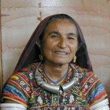
Insanity, Entrepreneurship And A World Of GoodEntrepreneur and friend Priya Haji co-founded World of Good, a socially conscious business that sells crafts and textiles made by women who live in impoverished countries. The aim of the organization is to promote economic equality in communities that have traditionally been economically exploited. |
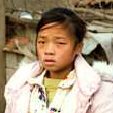
The Women Of Guanyun CountyOn the other end of the spectrum, we have this photo series from M. Scott Brauer which depicts an economically depressed region in China. The lack of social welfare programs, along with long-standing gender inequality, has created a difficult life for the women of Guanyan County. |
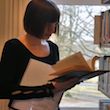
The Financial Crisis And Social MobilityIn this short video, two young women from different backgrounds are able to work toward similar goals rather than be constrained by financial class, thanks to Denmark’s government-subsidized education. It’s an example of how policy can, in some instances, help level the playing field. |
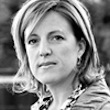
Can "Nice Girls" Negotiate?This essay by investment banker Whitney Johnson sheds light on the fact that in corporate America, women are often shunned for negotiating, while men are looked at as being proactive and powerful. |
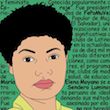
Women Working For WomenArtist María Acha Rodríguez created this beautiful series of public art murals honoring women in Mexico who fought for women’s rights and paved the way for the freedoms women have now. |
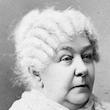
Political Firsts: American Women, At A GlimpseThis timeline represents the women who were political pioneers in the US, infiltrating male-dominated political society. It highlights how far women have come towards gender equality in American politics and society as a whole, and how much more we need to achieve. |
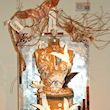
Political Art In The Female FormAnahi DeCanio’s art installations use collage and the female form to represent women’s inequality in democracy, peace, and human rights, and pays homage to inspirational women such as Rosa Parks. |
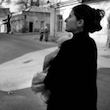
A Post-Soviet StoryMielnikiewicz’s heartbreaking photo documentary depicts a young mother’s struggles with poverty and economic instability after the fall of communism. |
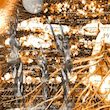
Go WomenThis series of mixed media digital collages by artist Tammy Mike Laufer uses Hebrew text from Israel's legislation calling for gender equality in employment--creative and subversive all at once. |
ABOUT LEILA JANAH
Leila Chirayath Janah is the founder of Samasource, an award-winning social business that connects people living in poverty to microwork--small, computer-based tasks that build skills and generate life-changing income. Leila is a frequent speaker on social entrepreneurship and technology, and her work has been profiled by CBS, CNN, NPR, the BBC, The New York Times, and The New Scientist. She serves on the board of the non-profit TechSoup Global and as an advisor to mobile shopping app Spreetales. She received the World Technology Award for Social Entrepreneurship in 2010, and in 2009 was named one of Fast Company’s Most Innovative Women in Tech.
Prior to Samasource, Leila was a founding Director of Incentives for Global Health, an initiative to increase research and development spending on diseases of the poor, and a management consultant at Katzenbach Partners (now Booz & Co.). She has also worked at the World Bank and as a travel writer for Let’s Go in Mozambique, Brazil, and Borneo.
Leila was a Visiting Scholar with the Stanford Program on Global Justice and Australian National University’s Center for Applied Philosophy and Public Ethics. She received a BA from Harvard and lives in San Francisco.
GET TO KNOW LEILA JANAH
Learn more about Leila Janah and why she's involved in IMOW's Curating Change .
- IMOW matters to me because… Women are the world's silent majority. We do not, for the most part, start wars and hoard resources. We are ninety percent less likely to commit homicide than men. UNIFEM reports that women perform 66 percent of the world’s work and produce 50 percent of the food. However, we earn 10 percent of the world's income and own 1 percent of the property. Our wages are roughly 17% lower than men's. Something has to change, and soon.
- A mantra to live by… I love this quote from the late historian Howard Zinn:
“ To be hopeful in bad times is not just foolishly romantic. It is based on the fact that human history is a history not only of cruelty, but also of compassion, sacrifice, courage, and kindness.What we choose to emphasize in this complex history will determine our lives. If we see only the worst, it destroys our capacity to do something. If we remember those times and places—and there are so many—where people have behaved magnificently, this gives us the energy to act, and at least the possibility of sending this spinning top of a world in a different direction.
And if we do act, in however small a way, we don’t have to wait for some grand utopian future. The future is an infinite succession of presents, and to live now as we think human beings should live, in defiance of all that is bad around us, is itself a marvelous victory. ”
- People Don’t Know That… I love everything about boxing.
TAKE ACTION
Learn which causes and organizations matter most to Leila Janah and how you can connect with them.
SAMASOURCE
Samasource embodies my core values in its people, processes, and vision, and I'm honored to still have a job as the company's CEO.
EQUAL JUSTICE INITIATIVE
Bryan Stevenson, EJI's founder, has dedicated his life to reforming the criminal justice system and abolishing the death penalty, a stain on the American conscience. And he's set up his organization in the heart of Alabama, where he feels change is most needed. The United States has the highest per-capita rate of incarceration in the world, and a prison system that is ruled by the profit motive, rather than by a desire to rehabilitate the 700,000 people who now reside in jail. This is not an easy battle. Stevenson is an inspiration to every social entrepreneur, in every sector.
TEACH FOR INDIA
TFI is brilliant for so many reasons. Wendy Kopp, founder of Teach for America and the inspiration for so much educational innovation in our country, figured out how to replicate her success under the purview of an organization called "Teach for All." And within a short time, the replication is already happening. I visited Kolkata last week and learned that my young cousin Malini is now teaching through this program in South Asia's largest slum, Dharavi, in the heart of Mumbai. I am proud to see my ancestral homeland adopt and scale this model to meet the needs of hundreds of millions of children who do not have an equal opportunity.

